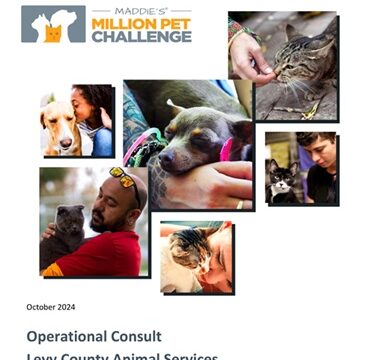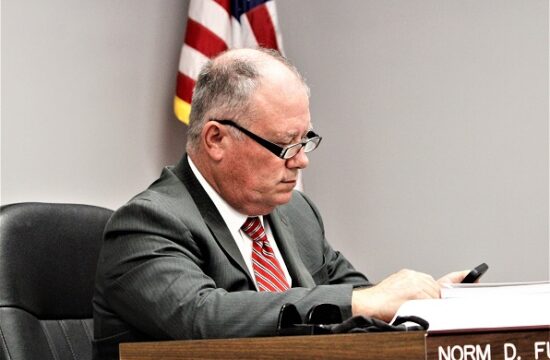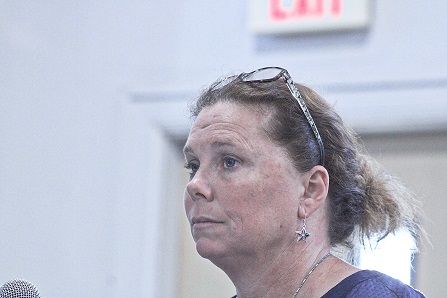By Terry Witt – Spotlight Senior Reporter
The opening of the World Equestrian Center in Ocala was perceived by many as a significant economic boost for the region, but locally, the county commission has a different perception, worrying that horse manure haulers could buy cheap rural land and use it as a convenient dumping ground for this growing industry.
Commissioners voted unanimously Tuesday to approve a resolution that sets in motion efforts by county staff to develop an ordinance and related regulations that clearly define what is meant by illegal manure dumping and stockpiling in Levy County and what is considered legitimate agriculture including composting manure for use as crop fertilizer.
The current county Land Development Code outlines how land can be used in the unincorporated (rural) areas of the county but says nothing about manure dumping. County Attorney Nicolle Shalley said the lack of dumping regulations is why the practice is illegal in Levy County.
“It’s not recognized as a permanent use and so all those commercial uses that aren’t permitted are prohibited,” Shalley said. “What will happen in the ordinance staff is working on – there may be some particular uses that can be defined that would be beneficial such as turning it into a beneficial product – a composting operation.”
Developing manure dumping regulations won’t be simple. It’s a tightrope the board must walk to protect legal agriculture that uses manure as fertilizer for crops while changing land-use rules to keep out dumpers who could stink up the county, pollute the aquifer and make the lives of rural residents miserable by piling up manure near their homes and creating a nuisance.
The board isn’t accusing World Equestrian Center or any other horse-related organization of wanting to dump huge quantities of manure in Levy County but wants to head off the issue before it becomes a problem and also hopes to set the record straight that county law as it exists now, and in the future, won’t allow manure dumping that isn’t connected to legitimate agriculture.
The resolution states that dumping, storage, disposal, and treatment of barn waste and manure isn’t recognized in the county’s Land Development Code as commercial or industrial use and is prohibited.
“That prohibition doesn’t extend to generating and reusing manure on bonafide farm operations on land that’s classified as agriculture land where that is done in the course of operations and is regulated under state law, and that’s important both for the Right to Farm Act and follows the Florida Department of Environmental Protection regulations as to this material,” Shalley said.
“I think the whole point is we need to appropriately regulate those commercial and industrial uses so the property in Levy County is not devalued, so public nuisances aren’t created,” Shalley added.
The issue was brought to the board by Commissioner Matt Brooks in an effort to stop horse manure dumping in the future and set forth rules that say what is and isn’t legal.
“If it’s going to be an activity that takes place in our county, we need to say this is how it takes place unless it’s bonafide agricultural operations and they’re doing the composting and spreading on their land,” Brooks said.
The issue of manure dumping isn’t new. In the past, the county has dealt with farmer Allan Fant’s property in Morriston. Neighbors accused Fant of simply piling up manure on his property and creating a smelly eyesore. He denied the charge.
Commissioner John Meeks said Fant’s farming practices came to the board several times including once when his manure piles caught fire, but he said ultimately the Florida Department of Agriculture and Florida Department of Environmental Protection sided with Fant and ruled that he was abiding by agency rules making fertilizer and the county commission had no right to challenge the state’s authority.
“He was checking all the boxes. All his neighbors said he wasn’t doing what he was supposed to, but according to the state people who regulate it, it superseded our authority. He’s doing what he’s supposed to be doing,” Meeks said.
Meeks said there are other instances in Levy County where people are trying to compost.
“I think there are operators doing that. I think Commissioner Brooks concerns is just about general dumping and that is a legitimate concern, and dumping is not a legitimate agricultural operation. That’s just somebody buying 40 acres, filling it up, and have a nice life,” Meeks said.
Brooks said he initially suggested appointing a committee to work on the ordinance and regulations and to make recommendations to the board, but on second thought, he felt it would be best to invite scientific professionals and state agency officials to the table with expertise on the subject to meet with staff in a workshop to hammer out the best way of regulating dumping.
Meeks said the ordinance will determine what is and isn’t allowed.
“You can’t just dump. If you’re going to do it, you have to be doing it positive,” Meeks said.
Shalley said right now dumping unrelated to agriculture remains illegal.
“What the ordinance will do is suggest to the board based on staff research and based on the input from the industry and others, whether there can be articulated in some way specific uses, commercial and industrial, that might be okay, and surrounded by all the regulations that go with it,” she said. “If the board were to determine that a dump of manure in an industrial area is an okay thing as long as it has enormous buffers, whatever the regulations might be; that’s what we’re talking about – some specific way of defining uses that may be permissible in the future,” Shalley said.
“It’s complicated,” she said.
“Yes, it is,” said Commission Chairman Rock Meeks.
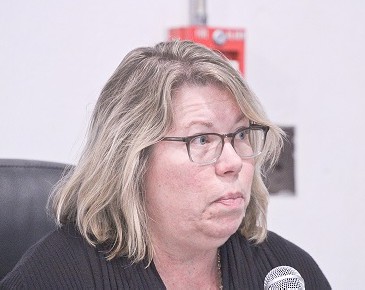
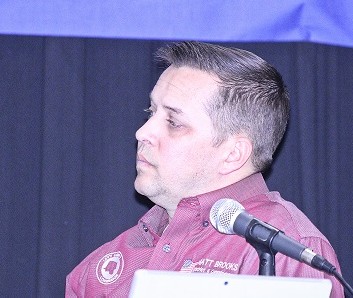
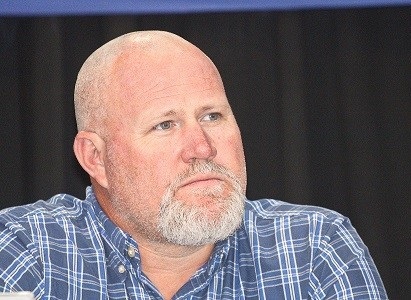

—————————-
Board of County Commission Regular Meeting February 22, 2022; Posted February 22, 2022




